German President Frank-Walter Steinmeier said on Monday that politics “has a duty to try the impossible” as he evaluated the Cyprus problem.
Steinmeier is in Cyprus on an official visit to the island and spoke about the Cyprus issue following a meeting with his Cypriot counterpart Nikos Christodoulides.
He said that in the past, the Cyprus problem saw “optimistic phases which gave hope for a better solution”, but those were ultimately fruitless.
“However, politics has a duty to try what seems impossible,” he said, praising Christodoulides for his “prioritisation of the resolution of the Cyprus problem with the support of the United Nations”.
Speaking regarding relations between the EU and Turkey and Cyprus’ request for the EU to appoint an envoy for the Cyprus problem, he said “I recognise Cyprus’ desire to have an envoy and also for Turkey to get more involved.
“It is equally important in Cyprus to make it clear to Turkey often, regardless of who will do it, that its behaviour regarding the solution of the Cyprus problem must also be related to other issues in Turkey such as its approach to the EU,” he said.
“[Other] member states must also send this message to Turkey.”
In this regard, he said Germany and other countries “will support the UN’s efforts”.
To this end, he announced that German police officers would be sent to Cyprus to join the UN’s peacekeeping force (Unficyp) for the first time within the coming months.
“Given that this year marks the accession of Cyprus to the EU and the 50th anniversary of the division of Cyprus, it is time to work towards a solution to the Cyprus problem.”
He also expressed his “satisfaction” with the appointment of UN envoy Maria Angela Holguin, saying “this is an important message being sent to give momentum to the solution of the Cyprus problem and break the stagnation.”
He called on all parties involved to “show the necessary readiness for compromise” so that Holguin’s meetings can lead to a return to the negotiating table.
Moving on to the matter of external conflicts, he described Cyprus as a “safe harbour” in the region, “especially after the terrorist attack by Hamas in Israel”, noting that Cyprus, with its Estia plan, had facilitated the evacuation of German citizens from Israel.
He thanked Christodoulides for his “swift, multifaceted, and effective” support in this regard, and said he hopes to “strengthen cooperation in civil defence matters”.
Christodoulides noted he was an ardent supporter of closer relations between the EU and Ankara.
“Such closer relations pass through developments and a solution to the Cyprus problem. I am glad there are advanced discussions on this subject in Brussels, and we will see what will be on the agenda of the European Council in March, if there will be a discussion on relations between the EU and Turkey,” he said.
He also said the EU’s involvement in the Cyprus problem “will act as a catalyst” to achieve a solution, and that Ankara should “show its will” for such a thing to happen.
He added that relations between Cyprus and Germany are “excellent”.
“Cyprus is the closest EU member state to the region,” he said, adding that the country has excellent relations with all neighbouring states, and Cyprus was doing everything it could to create conditions of stability.
Moving on to internal matters in the European Union, he said the bloc is “at a critical stage”, and that “we must discuss the future of our common European family.”
“Cyprus is in favour of further European integration,” he added.
Steinmeier noted “we are living in times of intense challenges in the region, and all of Europe is suffering from the war in Ukraine.”
He added that “a solution must be found to the enormous humanitarian crisis” taking place in Gaza.
“This year marks 35 years since the fall of the Berlin wall. It is my hope and aspiration that we will soon be able to celebrate the reunification of Cyprus, Nicosia, the last divided capital in Europe,” he added.
Steinmeier was received by Christodoulides at the presidential palace, receiving full military honours, before the national anthems of both Cyprus and Germany were played. He then laid a wreath at the Makarios statue at the palace.
The pair then held a private meeting and presented each other with medals.
Later on Monday Christodoulides and Steinmeier visited the Nicosia town hall and the green line, before attending a lunch hosted by the Cyprus chamber of commerce (Keve).
Steinmeier then visited the anthropological laboratory of the Committee on Missing Persons (CMP) and peacekeepers from the United Nations Peacekeeping Force in Cyprus (Unficyp).
In the evening, Steinmeier attended an official dinner hosted in his honour by Christodoulides at the presidential palace.
On Tuesday, Steinmeier will speak to students at the Makarios high school in Aglandjia and then the migrant reception centre in Kofinou, where he will be briefed by Interior Minister Constantinos Ioannou.
Afterwards, he visit the village of Lefkara on a guided tour, followed by a lunch with Christodoulides in Kato Drys, before returning home.

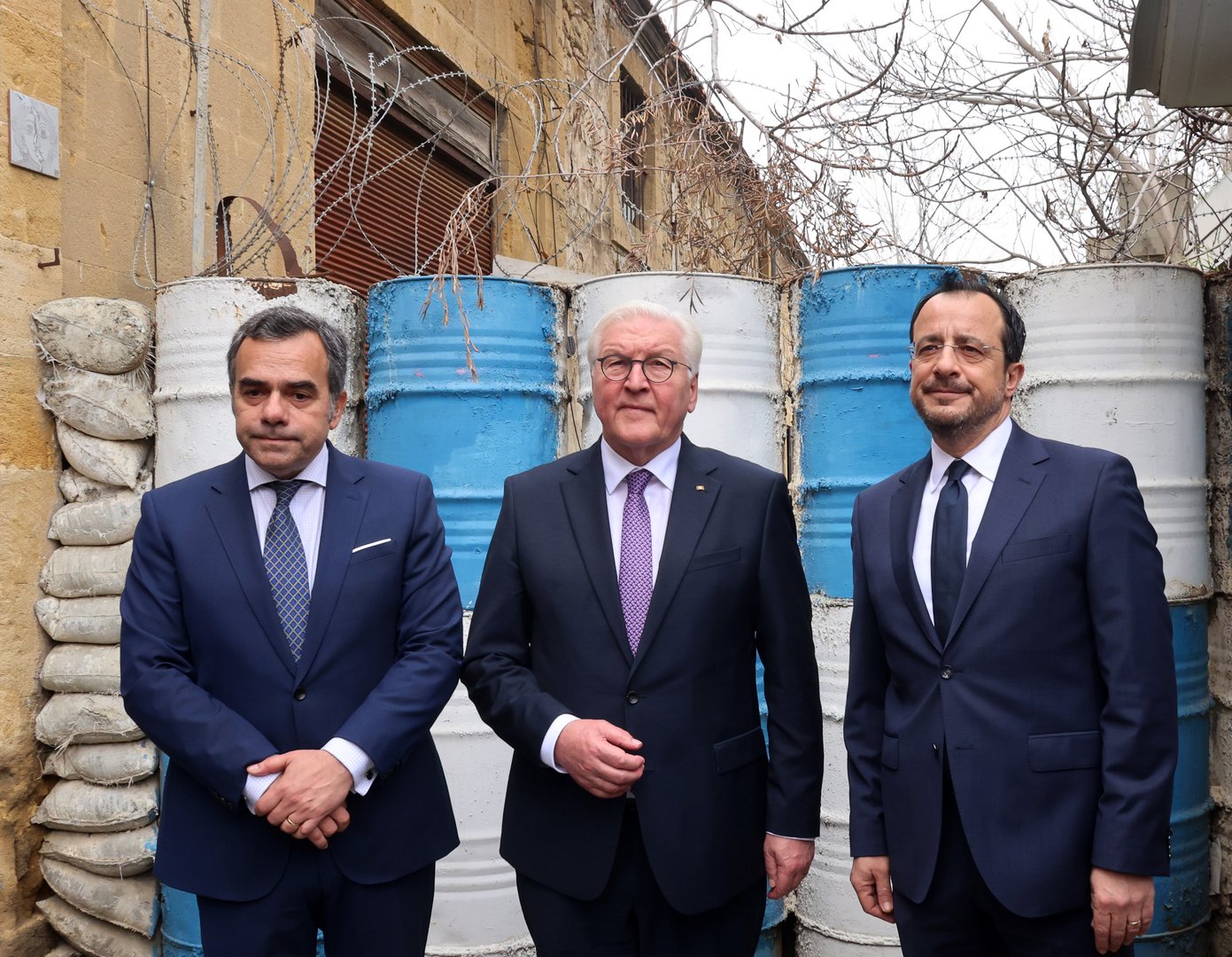
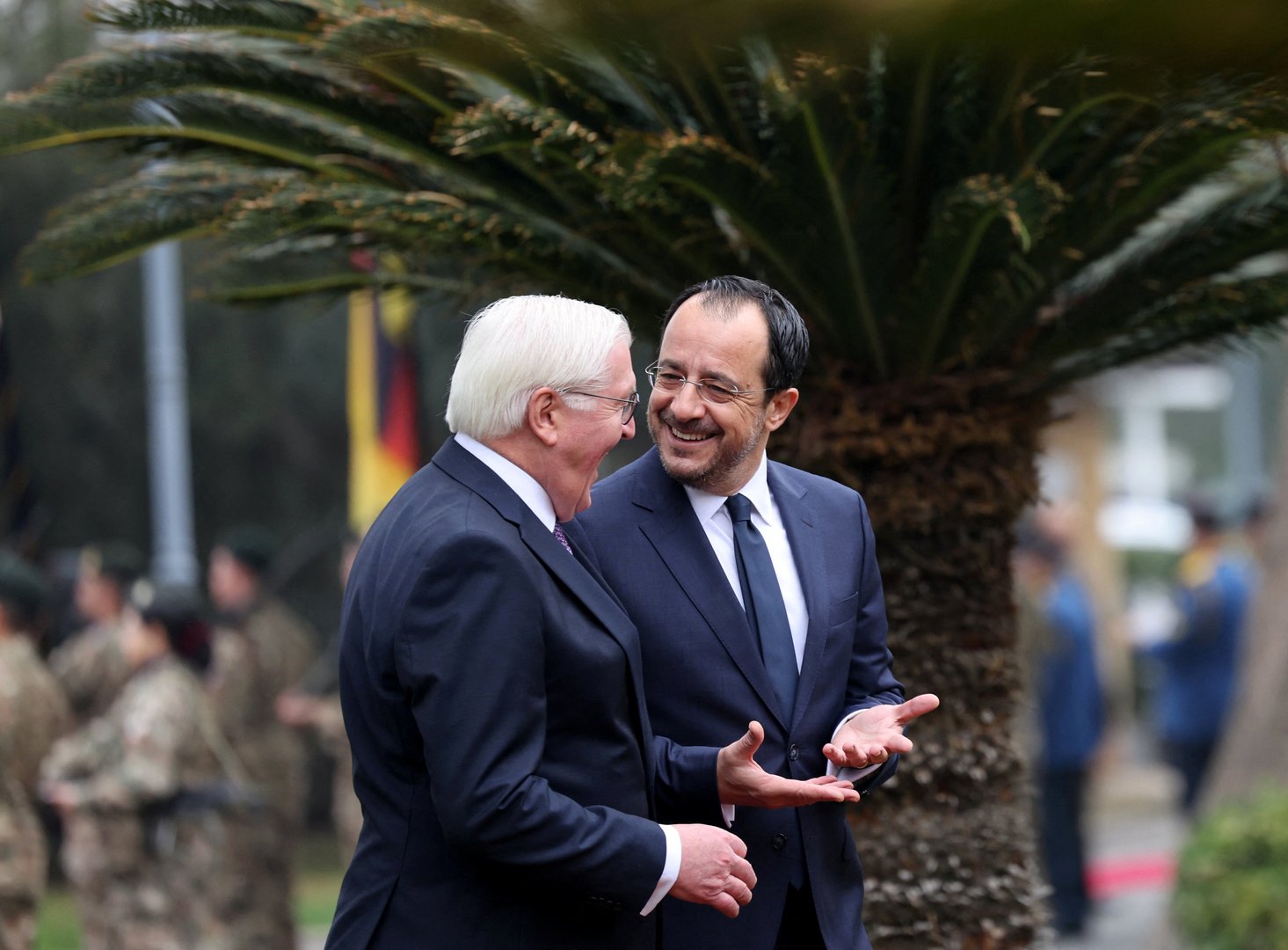
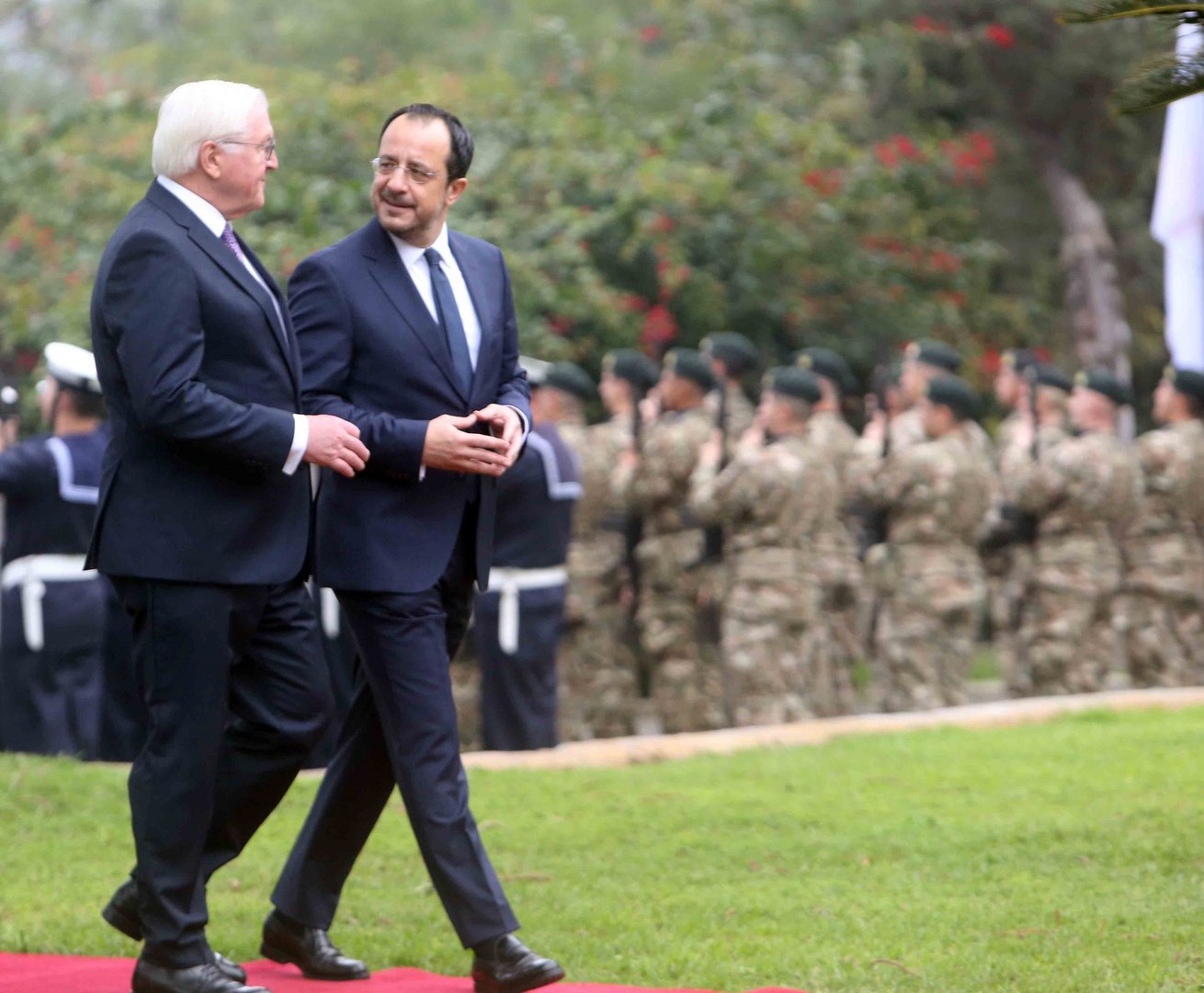
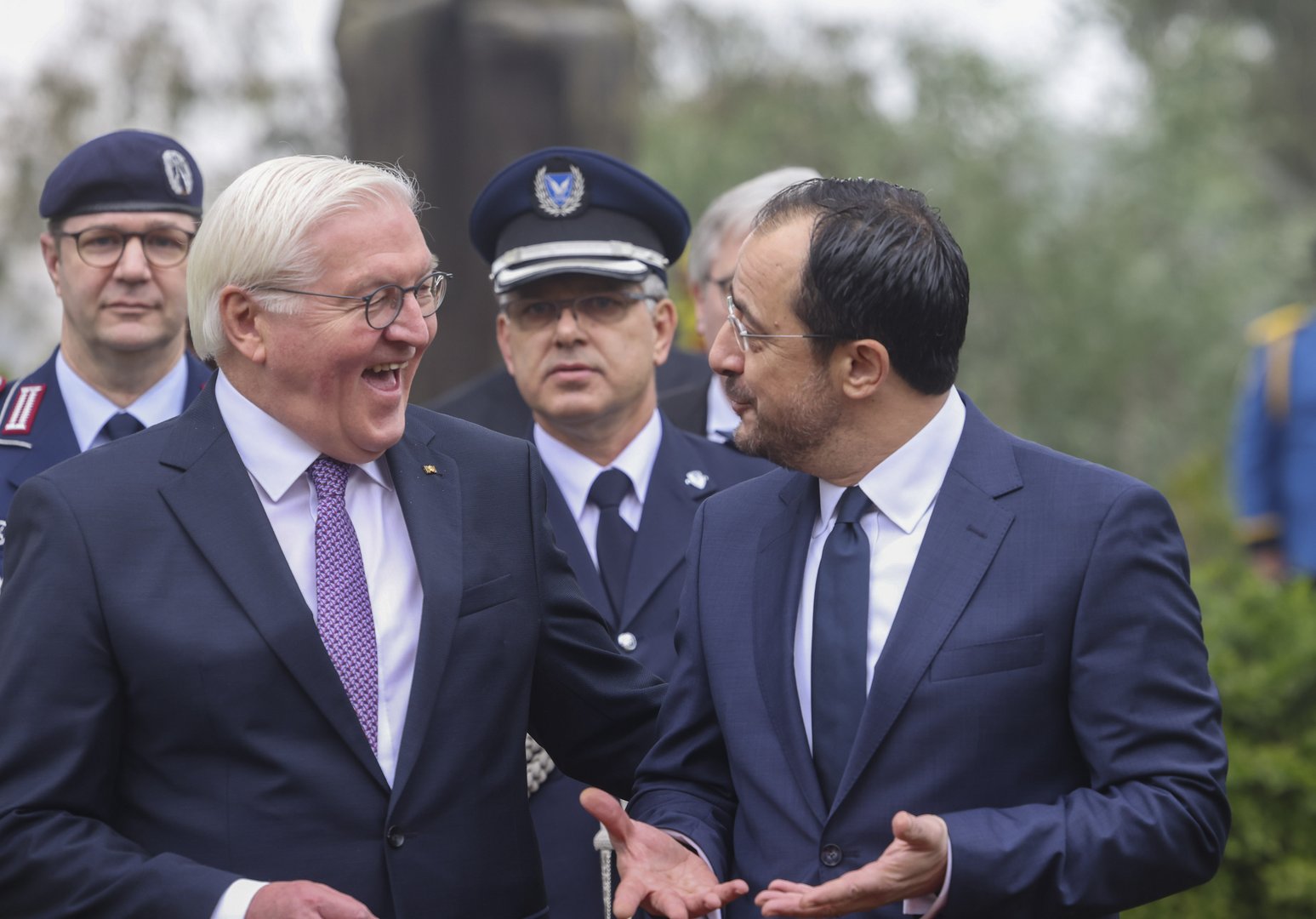
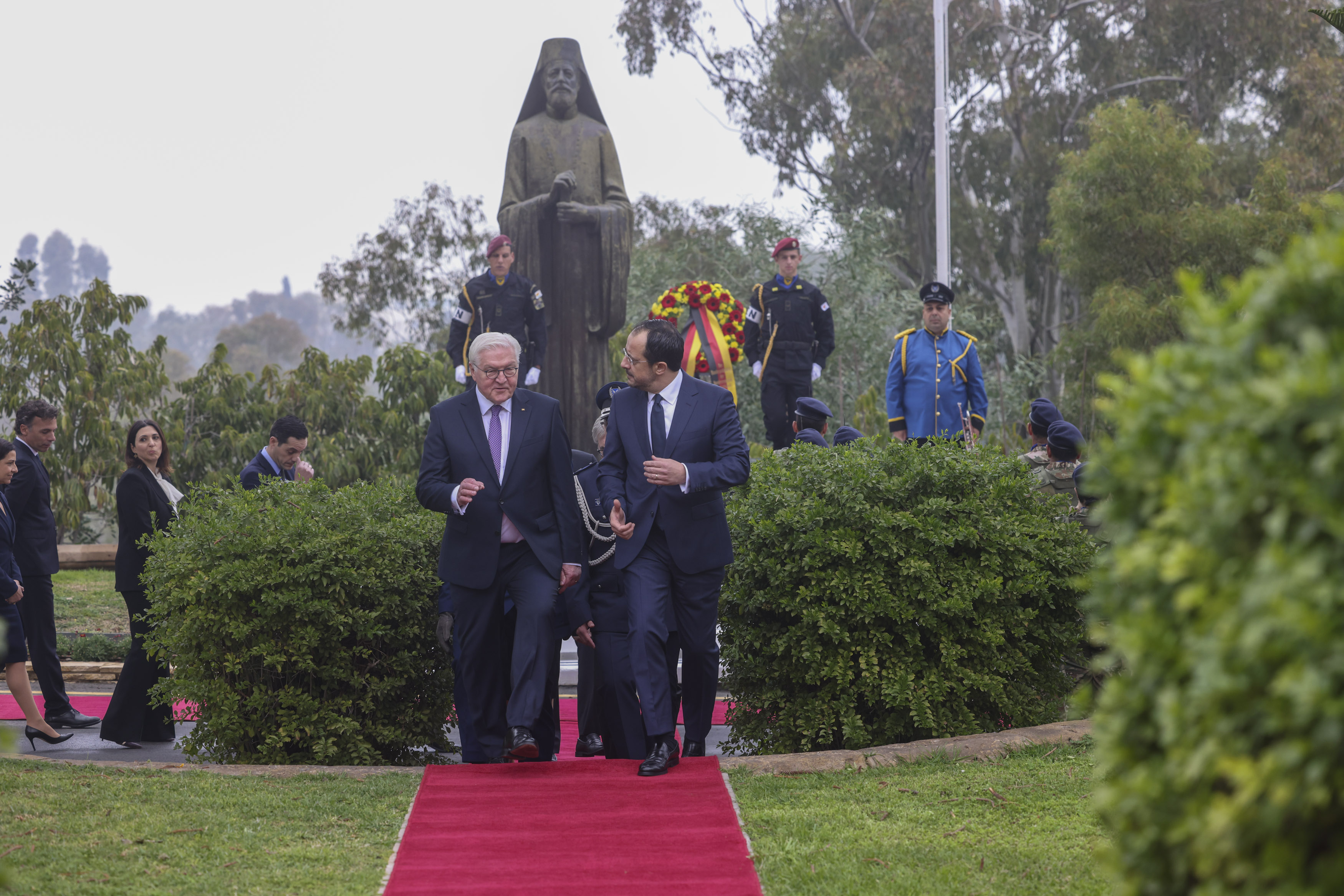
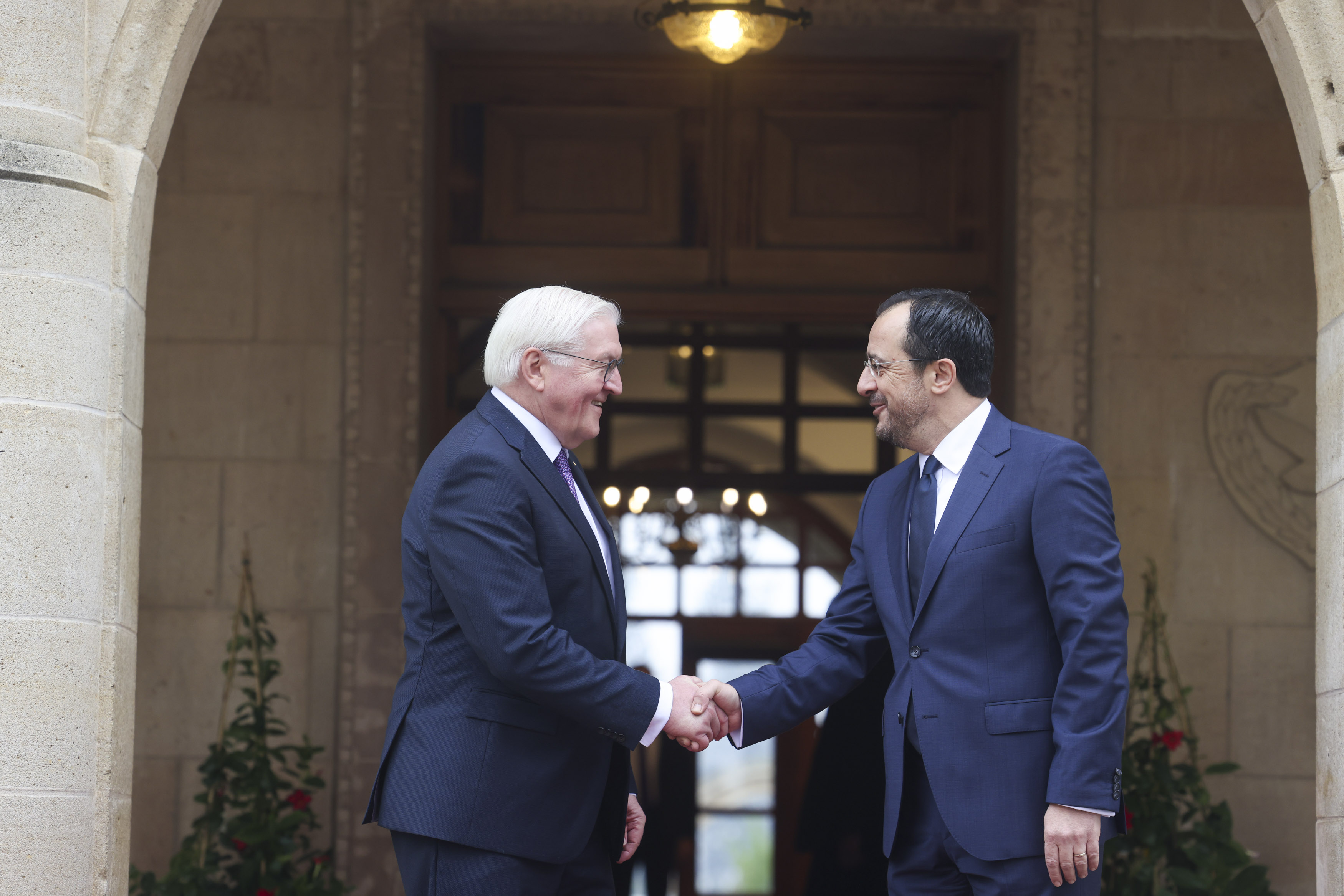





Click here to change your cookie preferences